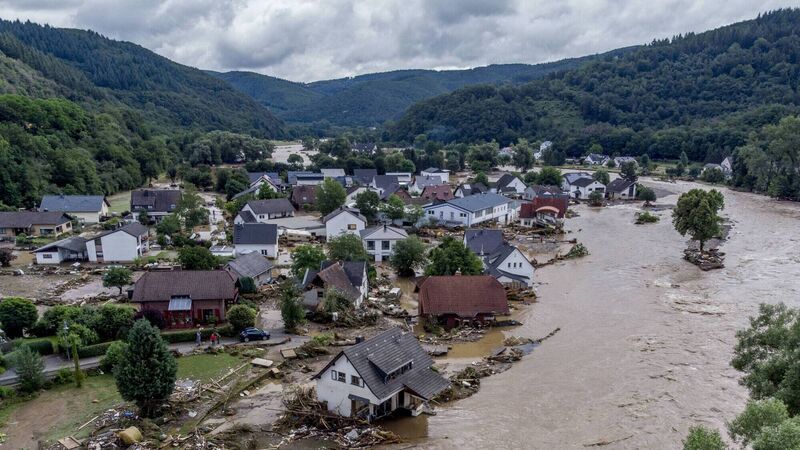ECB 'sees up to 45% hit to EU property values from climate change floods'

Damaged houses at the Ahr river in Insul, Germany, last July. The ECB is factoring in a 45% slump over a single year for property values in areas that are likely to experience bad flooding. Picture: AP
European banks have been told to assume that real-estate assets most exposed to flood risk could lose almost half their value, as the sector’s resilience to climate change is stress-tested over the coming months.
The ECB is factoring in a 45% slump over a single year for property values in areas that are likely to experience bad flooding, Fernando de la Mora, a managing director at Alvarez & Marsal, told Bloomberg ahead of the expected publication of the ECB’s scenarios later this week. That would leave German and Dutch banks among the most exposed. An ECB spokeswoman declined to comment.











